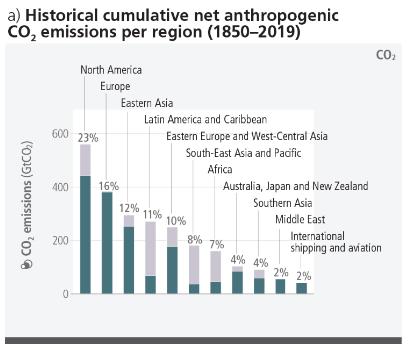
The #AR6 #SYR is groundbreaking in its examination of issues of equity and climate change. For the first time, the report emphasizes the unequal historical and ongoing contributions, and differential vulnerabilities within and between nations/regions/peoples. (1/n) 

The report highlights that climate change has been driven by unsustainable energy use, land use, and consumption patterns across regions. Unequal contributions have arisen due to differences in countries' activities, and some have contributed far less than others. (2/n) 

Vulnerable communities who have historically contributed the least to climate change are disproportionately affected, both in terms of who is impacted and the severity of impacts. This stark reality underscores the need for fair burden-sharing. (3/n) 

All countries must show ambition in addressing climate change, but wealthier countries, and wealthier people have a particular responsibility to do their fair share. (4/n)
The report emphasizes that adaptation outcomes can be enhanced by increasing support to regions and people with the highest vulnerability to climate hazards. Integrating climate adaptation into social protection programs improves resilience. (5/n)
Finance, technology, and international cooperation are critical enablers for accelerated climate action. The #SYR highlights the need for wealthier nations to increase support for climate change mitigation and adaptation action, particularly in vulnerable regions. (6/n)
Prioritising equity, climate justice, social justice, inclusion and just transition processes can enable adaptation and ambitious mitigation actions and climate resilient development. (7/n)
Drawing on diverse knowledge and inclusive governance processes is key to addressing equity issues in climate change. The #SYR shows us that effective, equitable climate action requires commitment from all, but with those that are wealthier leading the way. (8/n)
• • •
Missing some Tweet in this thread? You can try to
force a refresh




